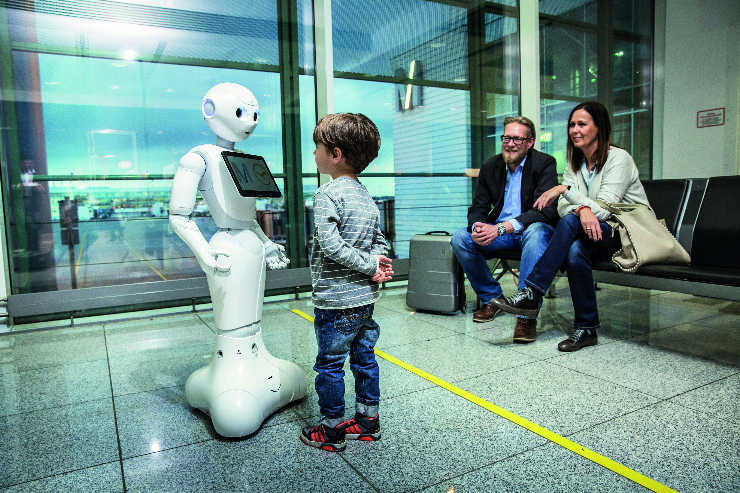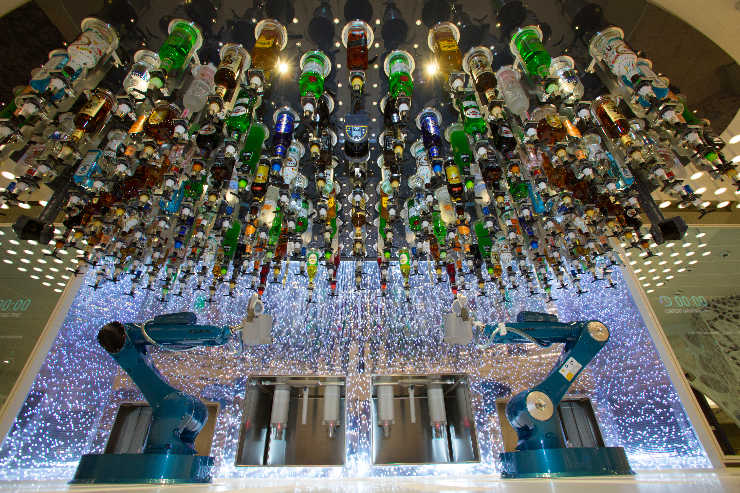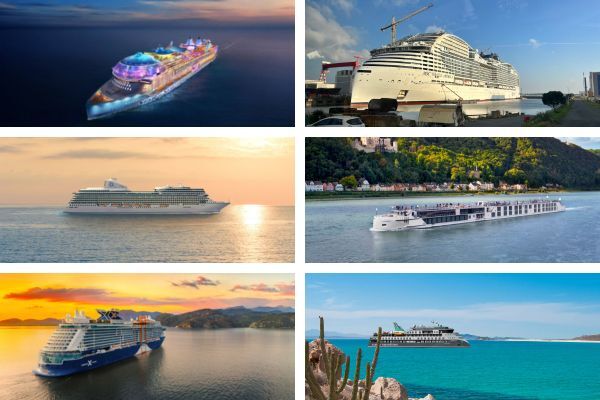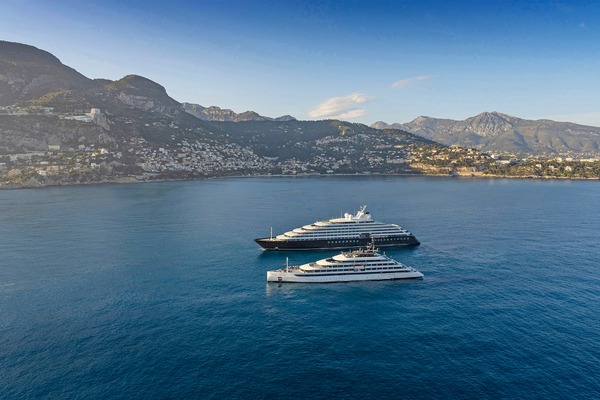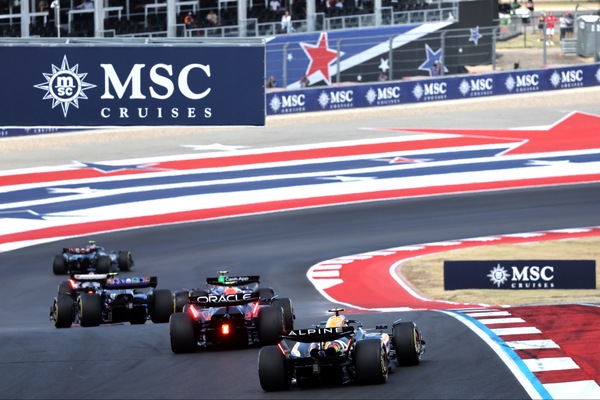The robots reshaping travel
As the use of robotics gathers pace in the world of travel, Andrew Doherty looks at how the technology can help both agents and their clients.
Whether you believe in a Black Mirror-style dystopian future or look forward to rubbing shoulders with the likes of WALL-E, it’s hard to ignore the influence of robots.
The travel industry is also embracing robotics, incorporating it into various sectors, from cruise to high street agencies. We take a look at how robots could benefit everyday operations in travel and offer agents a quirky selling point when dealing with tech-minded travellers.
Airports
Lengthy boarding may soon be a thing of the past. In April, British Airways pledged to roll out biometric boarding for international flights this summer after tests on UK domestic routes and US departures at Heathrow’s Terminal 5.
Biometrics – a form of ID using a person’s unique and behavioural characteristics – allows passengers, after clearing traditional check-in and security, to board without having to present their passport or boarding pass again.
Meanwhile, Gatwick has announced it will trial a fleet of valet-parking robots at the South Terminal’s long-stay car park this August. Travellers will leave their car at a dedicated drop-off point before summoning Stan the robot via an app. The droid will then move the vehicle by sliding forklift-like arms under the chassis before finding a free parking space using AI (artificial intelligence) and GPS. Because doors never have to be opened, more vehicles can fit into the car park.
“The valet parking robots could revolutionise parking at Gatwick and may become commonplace at airports across the world,” says Guy Stephenson, chief commercial officer. “The new service will be a convenient, personalised experience that will save passengers time while also reducing vehicle emissions.”
At Munich Airport, humanoid robot Josie Pepper was trialled in 2018 to help passengers in the terminal building.
“The idea was born when AI became a hot topic everywhere,” says Julia Schmidt, team leader for IT and security at the airport’s Terminal 2.
Running on IBM’s Watson technology – an AI platform that can answer questions posed in natural language – Josie assisted with passenger queries about shops, restaurants and flight operations.
“Josie had the surprise factor for passengers and staff, with the ability to both entertain and de-stress them. We are also currently discussing new use cases and plan to bring her back to Terminal 2 shortly,” Schmidt adds.
Travel agencies
The idea of a robot working in a travel agency may seem unnecessary when most clients seek genuine human interactions and the expertise of a consultant. Yet Amadeus has created a robot that allows the agent to continue developing a human relationship with the customer while using clever tech to help speed up the booking process.
Alita (Amadeus Linguistics Intelligent Travel Assistant) has been dubbed a “computational linguistics interface” for travel agents – akin to Amazon Alexa – and designed to speed up bookings and improve the client experience.
“Alita listens to and processes the conversation [between agents and clients] to look up customer profiles, inspire, personalise and recommend content,” says Marion Mesnage, head of research and innovation at Amadeus.
“This innovation is not only about reducing the time spent during the booking process but also making the experience of having a conversation with a travel agent an enjoyable one. The way agents interact with the software is discreet and doesn’t break the natural flow of conversation.”
The tech is being showcased during Amadeus customer meetings and events, with testing to begin in a bricks-and-mortar agency imminently.
Cruise
The cruise industry is making waves with its technological investments. Take Princess’s Ocean Medallion – a watch-like device the size of a 10p piece that allows passengers to open doors, order drinks and purchase essential holiday items – and Celebrity Edge’s facial recognition software, which has been implemented to speed up check-in.
Meanwhile, Royal Caribbean has installed “Bionic Bars” onboard Anthem, Quantum, Ovation, Harmony and Symphony of the Seas.
Thirsty passengers can choose from a range of classic cocktails or craft their own. Guests control the robotic arm while they mix the drink, choosing whether it is shaken or stirred before it’s delivered to the end of the bar. The cruise line says Bionic bartenders can craft one drink per minute and up to 1,000 concoctions a day.
Ben Bouldin, the company’s associate vice-president and managing director, says: “Our Quantum-class ships are the most technologically advanced in our fleet, and from the launch of Quantum of the Seas we wanted to showcase innovation that would surprise and excite our guests.
“Makr Shakr’s Bionic Bar was developed to allow people to enjoy a ritual they are used to experiencing but in a new way. While robots don’t replace our human bar staff, they are an amazing addition to the team that provides efficient and exciting service.”
Hotels with robots
Innovative applications of robotics in hospitality
Getting vocal: Hospitality isn’t without its fair share of robot helpers. In 2016, the Hilton and Marriott hotel groups started experimenting with voice-activated droids Mario and Connie at the concierge desks of the Ghent Marriott Hotel in Belgium and the Hilton McLean Tysons Corner respectively. Marriott and Best Western Hotels and Resorts have also begun to implement Amazon voice technology in their rooms.
Butler service: London’s nhow hotel in Shoreditch, slated for a quarter four opening this year, is one of the first UK hotels to employ robot staff. Currently in its testing stage, Henry the kilt-wearing robotic butler will be able to deliver anything from extra blankets to room service orders. Other techie additions include LED fireplaces and state-of-the-art audio-visual equipment available for events.
